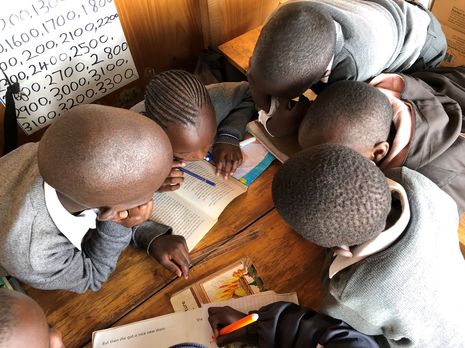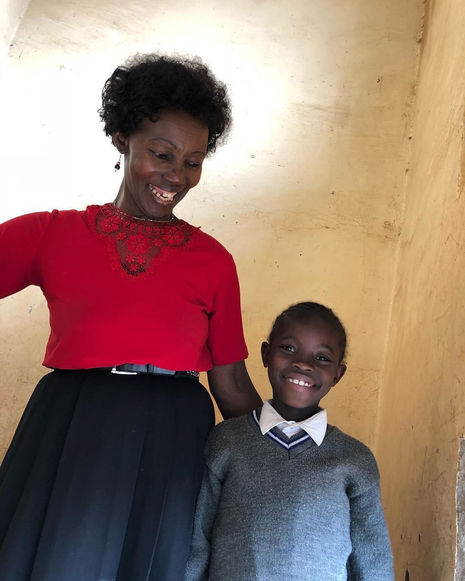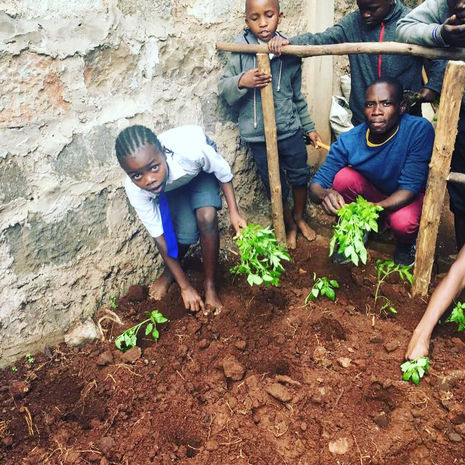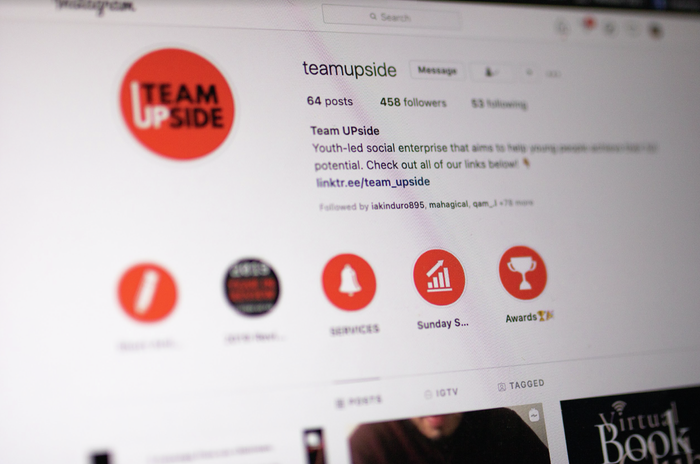A call to action: Volunteers Foundation, the charity championing education and self-sustainability
Vulture Editor Georgina Buckle talks to the VF charity’s founder, Monica Dan, about why education is everything, and how Cambridge students can get involved in making an impact

“A gender equal world, free of poverty and violence for everyone, built by altruistic and globally aware citizens.” This is the Volunteers Foundation vision. The charity was founded in 2010 with the aim of empowering and enabling children in Kibera (Nairobi), the largest slum in Africa, through the provision of quality education. Certainly, the charity has gone from strength to strength, founding the Volunteers Foundation Academy in 2016 and acquiring a plot of land to launch it as an independent, local primary school in 2019. Now, the charity is celebrating 10 years of impact with a special event on the 14th November. VF’s Founder, Monica Dan, is calling for Cambridge students to get involved.

At the heart of Volunteers Foundation is building a fairer world for everyone, where all abilities are put to use. There are three key focuses for delivering this: inspiration, catalysing change, and impact. The charity seeks to inspire everyone involved, from altruistic volunteers, to local champions in Kibera, to the students, in order to make the world a better place. The people of Kibera know what they need, and it is the role of VF to listen and help implement infrastructure where possible. Local champions are trained as teachers to lead the programmes in Kibera, and volunteers mentor children to support their emotional wellbeing. As Monica firmly asserts, we don’t have to wait for governments to make change, “we all have a duty of care toward others”. Uniting both the volunteers and the community in Kibera is how a change is made and Volunteers Foundation is the link that brings like-minded, altruistic people together to deliver impact. The charity advocates a 360-degree approach, seeking to enhance the educational experience of students in Kibera, whilst also focusing on health (physical and mental) and nutrition. The lives of volunteers are equally enhanced – the work adds value both ways – and it is this combined experience which demonstrates the full scope of the charity’s impact.
“Education imbues students with the capability to implement sustainable solutions”
With few schools in Kibera, and many families unable to afford their child’s education, helping to deliver education is of the utmost importance. Certainly, at Cambridge, the significance of an educational environment that nurtures potential is unquestionable. “Education is at the core of everything”, Monica enthuses. “If you start with education you gain academic knowledge, but then you can also tap into the UN goals, such as gender equality.” Kibera has a notorious issue with gender-based violence, and education offers one solution: if both girls and boys go to school and are taught equally, children learn early on that genders are equal. Monica points out that the VF Academy comprises 51% girls and 49% boys, with a similarly equal gender split among teachers. Not only that, education imbues students with the capability to implement sustainable solutions. “You get educated, you learn physics, biology, and you eventually cultivate sustainable solutions which lead to economic survival” elaborates Monica, adding that they hope to make the VF academy self-sustainable by 2027. Education generates endless effects: economic security; reduction of hunger; better knowledge of sanitation, and good health; all of which helps to stop recurrent cycles of poverty.

If you’re even slightly interested in community activism and social justice, the upcoming Volunteers Foundation event is an incredible opportunity to hear from world-leading thinkers in these fields. Taking place on Saturday 14th November, the event celebrates 10 years of VF’s impact by hosting hour-long sessions on four different, engaging topics. They are designed to be intimate conversations, where Monica will interview the speakers, or they will present on the topics, and this will lead to further discussion in the group. Here’s a breakdown of the sessions:
Human Capital
Who’s speaking? Ruth Charo, the Senior Education Specialist, Education Global Practice at the World Bank.
What’s it about? If students are interested in building a fairer world, we must look toward the human capital. It is the skills, knowledge, and experience possessed by an individual or population. Without it, no other capital has value. Activism is all about humans and nurturing the talents that each of us have, to build the future.
Adaptability
Who’s speaking? Sid Espinosa, Director of Philanthropy and Civic Engagement at Microsoft, in Silicon Valley. Espinosa is also the former mayor of Palo Alto, CA, and notably the first Hispanic to be elected to public office in that city’s history.
What’s it about? In order to build a fairer world, we must learn and adapt. Adaptability, both in business and personally, is vital to delivering effective aid. We cannot stay rigid in one mindset and must be able to integrate new things into our perspective, in order to understand how we can better achieve the goals we want.
Sustainability
Who’s speaking? Peter Schelstraete, the Co-founder & CEO of UBUNTOO, a global environmental solutions platform promoting sustainable economic growth. They help make eco-friendly business.
What’s it about? The way the world is currently going cannot continue. The more that we understand about the world and human capital, the more that we look to sustainable solutions. Solutions which respect nature and respect others are key.
Charity Revisited
Who’s speaking? Dr Auma Obama, the Founder of Sauti Kuu Foundation, which acts as a platform for disadvantaged children and young people worldwide. Dr Obama (Barack Obama’s half-sister) is also a renowned sociologist and journalist.
What’s it about? There’s a conception that charities go into areas and create dependencies: they give money, but the local community are not stimulated to create their own solutions and become independent. Instead, charities should aim to trigger thought, and enhance the ideas of the community.
These sessions are a promising way into community activism and are welcome to all regardless of experience.
Monica’s words ring in my head: “we all have a duty of care to others”. Community activism holds immense power and as students we should be using our knowledge to help and think about others. We all share a collective responsibility for the world, and social justice can be exercised by attending one of the sessions or taking part in the VF mentoring programme, amongst other possibilities. Crucially, volunteering adds value both ways. “It’s all about togetherness”, Monica urges, “it’s all about making an impact together.”
- To register for the aforementioned sessions, simply RSVP here
- To find out how else you can get involved with VF, click here
 News / SU reluctantly registers controversial women’s soc18 December 2025
News / SU reluctantly registers controversial women’s soc18 December 2025 News / CUP announces funding scheme for under-represented academics19 December 2025
News / CUP announces funding scheme for under-represented academics19 December 2025 Features / Should I stay or should I go? Cambridge students and alumni reflect on how their memories stay with them15 December 2025
Features / Should I stay or should I go? Cambridge students and alumni reflect on how their memories stay with them15 December 2025 Fashion / The art of the formal outfit 18 December 2025
Fashion / The art of the formal outfit 18 December 2025 Lifestyle / Summer lovin’ had me so… lonely?18 December 2025
Lifestyle / Summer lovin’ had me so… lonely?18 December 2025









